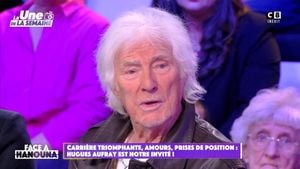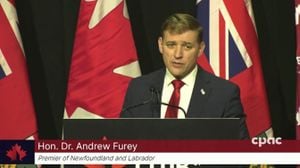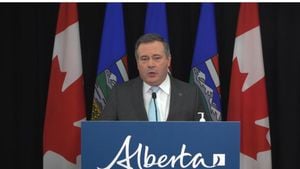The Federal Financial Monitoring Service of Russia has included poet Vera Polozkova on its list of terrorists and extremists. Her name shows up on the agency's website, marked with a star indicating the initiation of criminal proceedings against her under terrorism-related charges. Curiously, the precise reasons for her inclusion remain undisclosed.
After Russia's military intervention began, Polozkova left the country and has been outspoken against the actions of the Russian authorities. Up until now, several officials have investigated her comments, particularly those made about the recent assassination attempt on writer Zakhar Prilepin. The situation escalated when, during her interview with the TV channel Rain, she was asked if she celebrated the attack. She responded, saying, "maximum — pivo; terrorists didn’t reach to ‘shampanskoe.’" Following her comments, officials from the State Duma sought to review her statements for potential justifications of terrorism.
Throughout 2023, Polozkova's remarks prompted numerous inquiries initiated by various governmental representatives. Recently, Elena Yampolskaya, head of the State Duma Culture Committee, filed requests with the Prosecutor General’s office, probing whether the poetess had committed crimes by justifying acts of terror through her remarks. The poetess has continuously expressed her disapproval of the actions by the Russian military and the devastating effects of their operations, particularly claiming, “There is no longer politics or journalism, nor any working legal institutions in my country.”
Vera Polozkova left Russia for India shortly after the onset of the conflict, later moving onto Georgia, and is currently residing in Cyprus with her three children. A significant part of her earnings from performances abroad is reportedly sent to support Ukraine, which she has vocally backed, noting her contributions to humanitarian efforts.
This inclusion on the extremist list raises serious concerns about freedom of expression. Critics contend this reflects a repressive environment within Russia where dissenting voices are silenced, and artists face threats for speaking out against government policies. During the investigation, several public figures have mentioned their disapproval of Polozkova's statements, and notable reactions from public officials indicate the growing risks for those opposing the official narrative.
Despite this, Polozkova remains committed to her work and continues to perform across Europe, promoting her literature and speaking on issues related to the conflict. Her case exemplifies the dire circumstances many artists face amid deterioratory political climates, invoking questions of moral responsibility and human rights on both national and international stages.
The serious nature of these accusations and the potential repercussions, such as freezing her bank accounts and limiting her rights to dispose of property, demonstrate the extent of control exerted by Russian authorities to stifle dissent. Such punitive actions against Polozkova and others like her cultivate trepidation among individuals who might wish to express opposing thoughts.
Vera Polozkova’s story is not just about her personal plight; it embodies broader issues concerning artistic expression and the oppressive climate against dissenters within Russia. Critics of the government view actions like these as indicative of increasing intolerance and authoritarianism prevalent since the onset of the Ukraine conflict.



